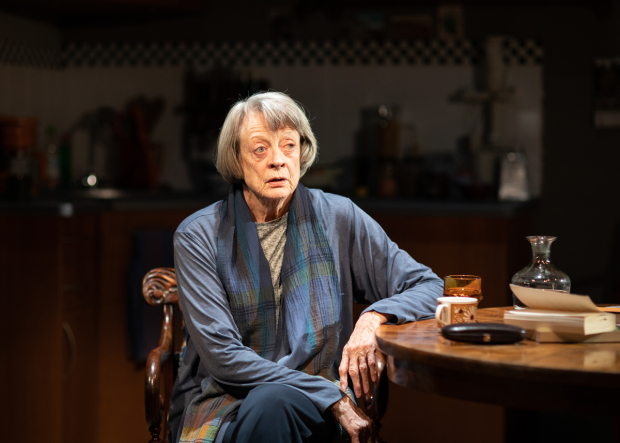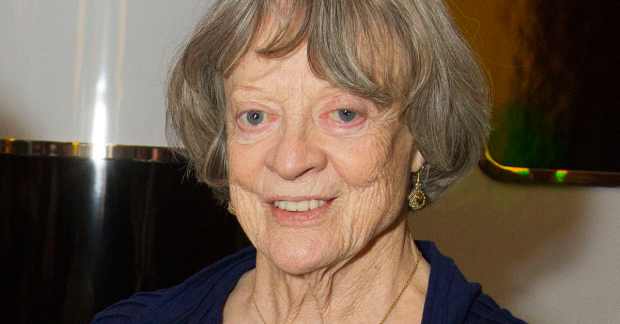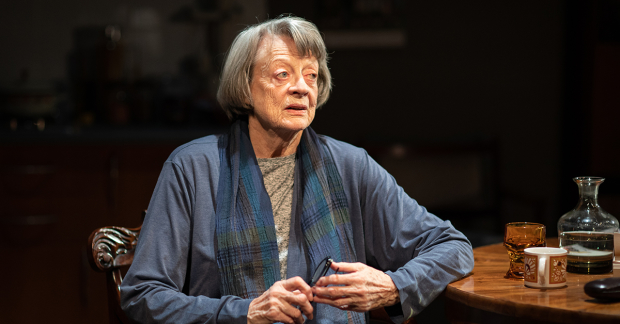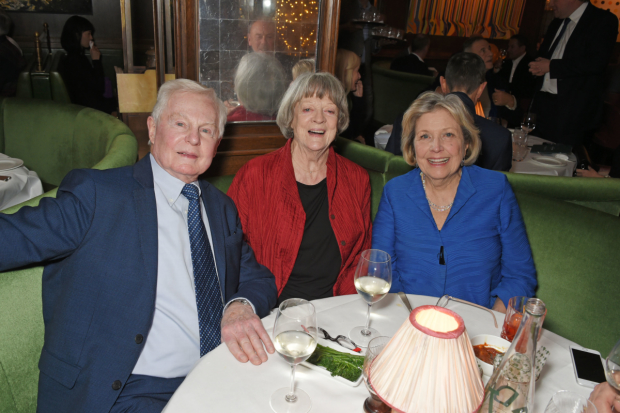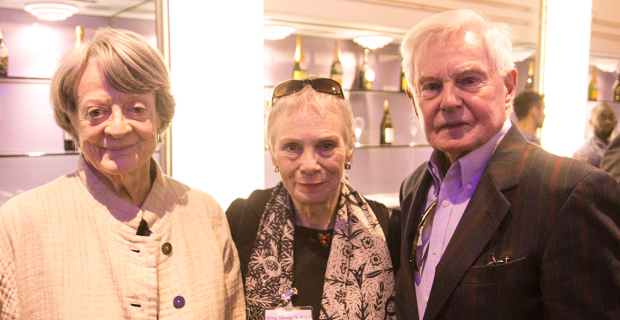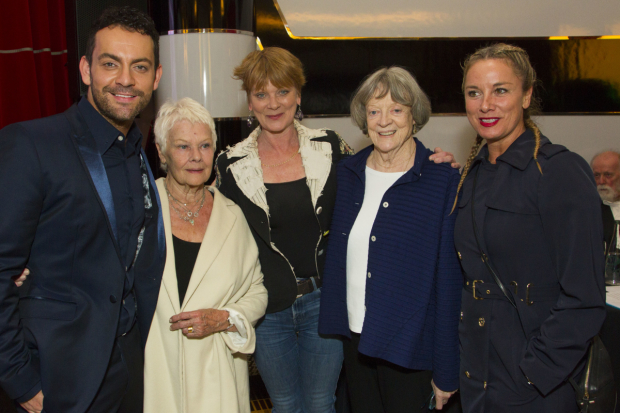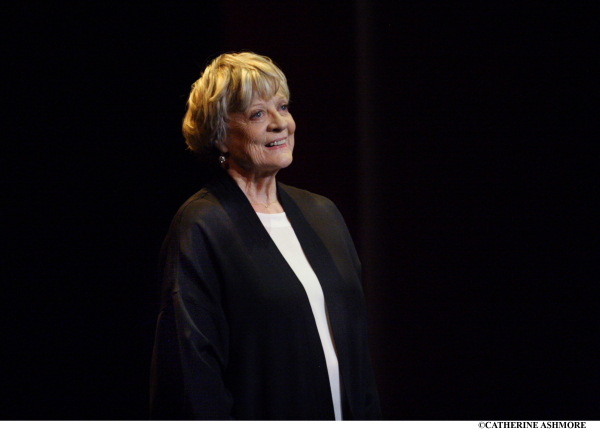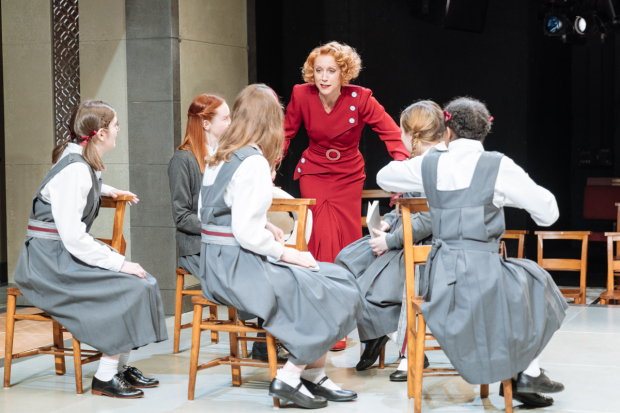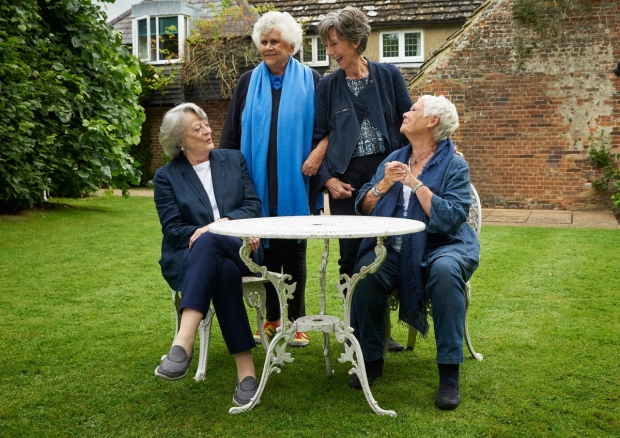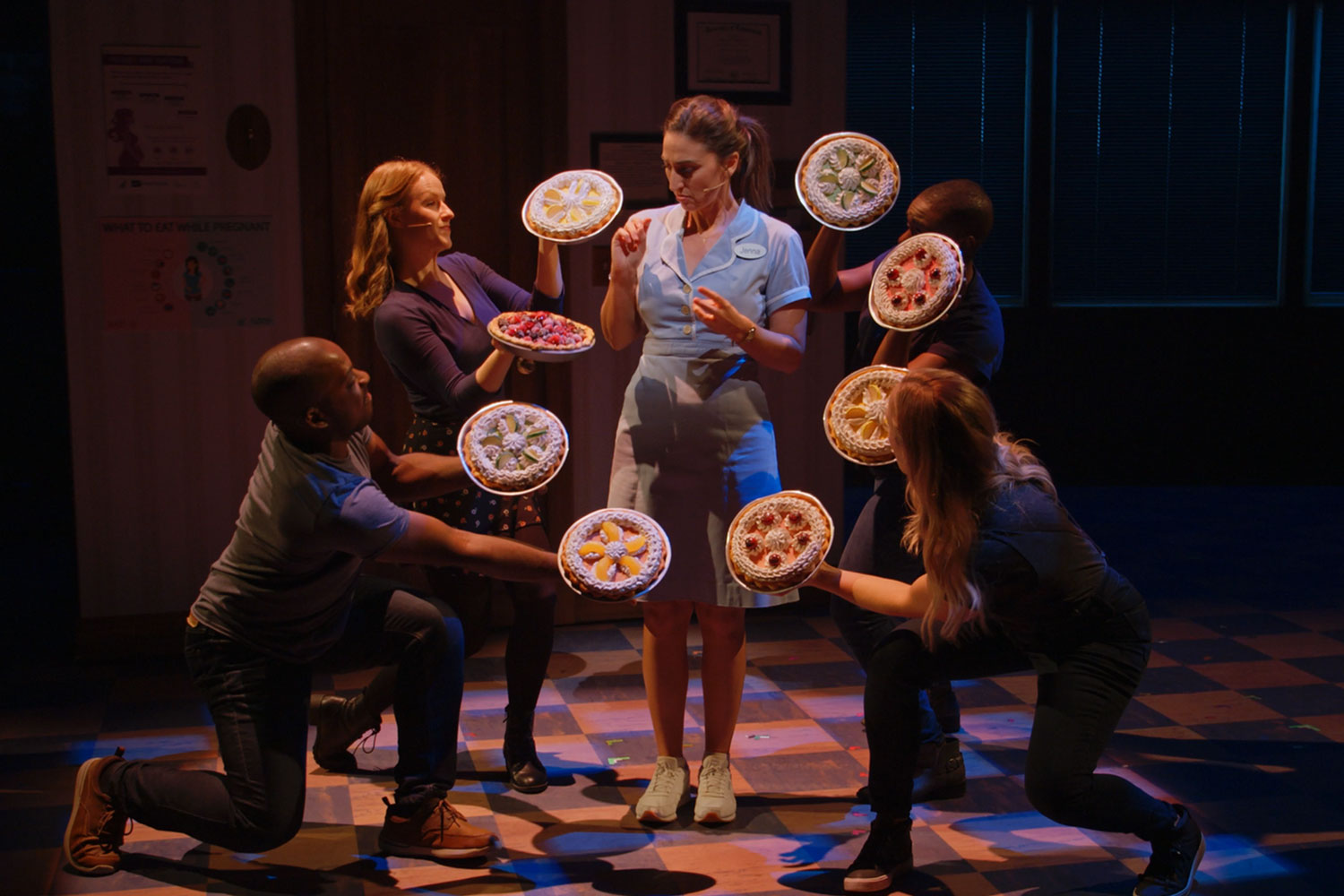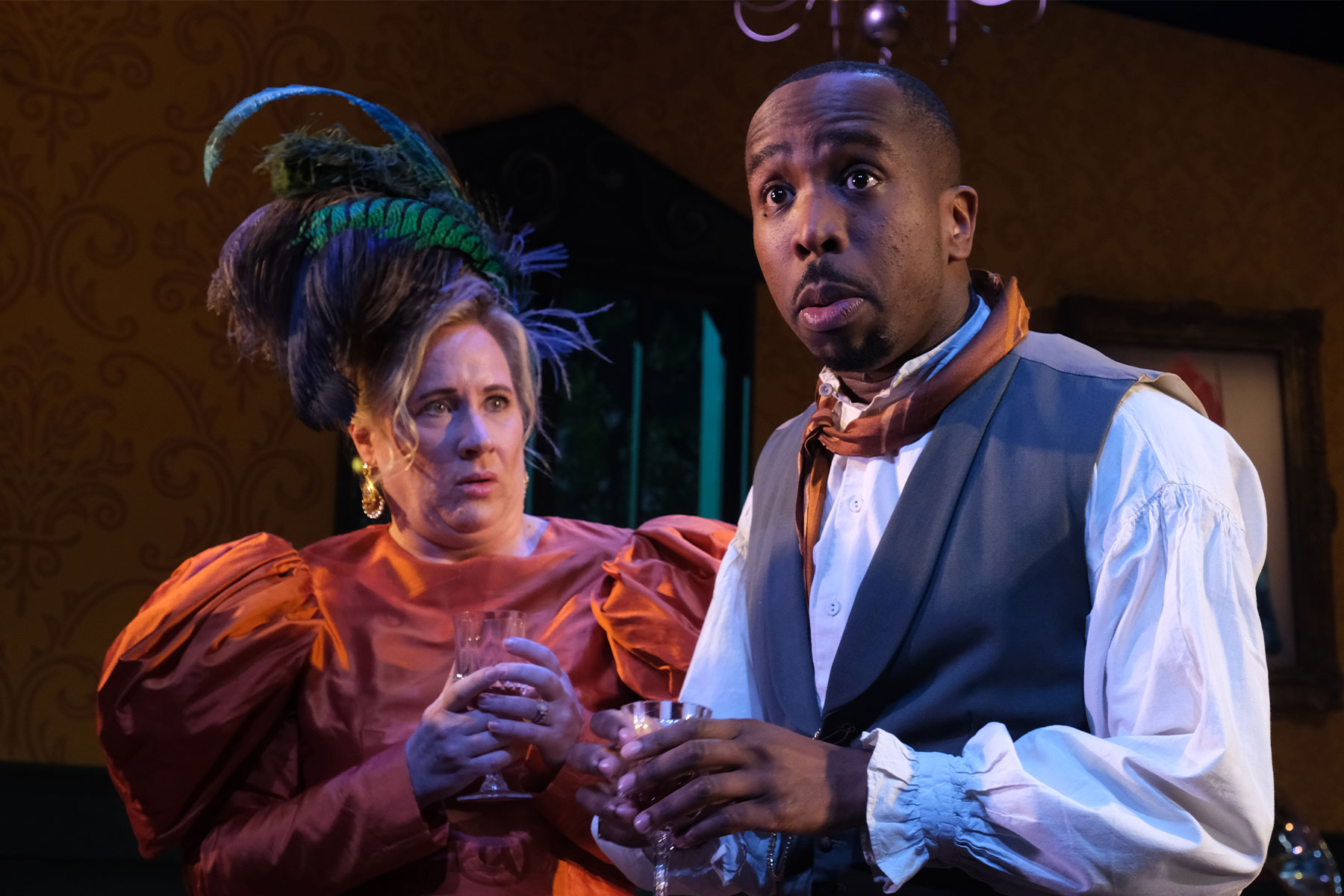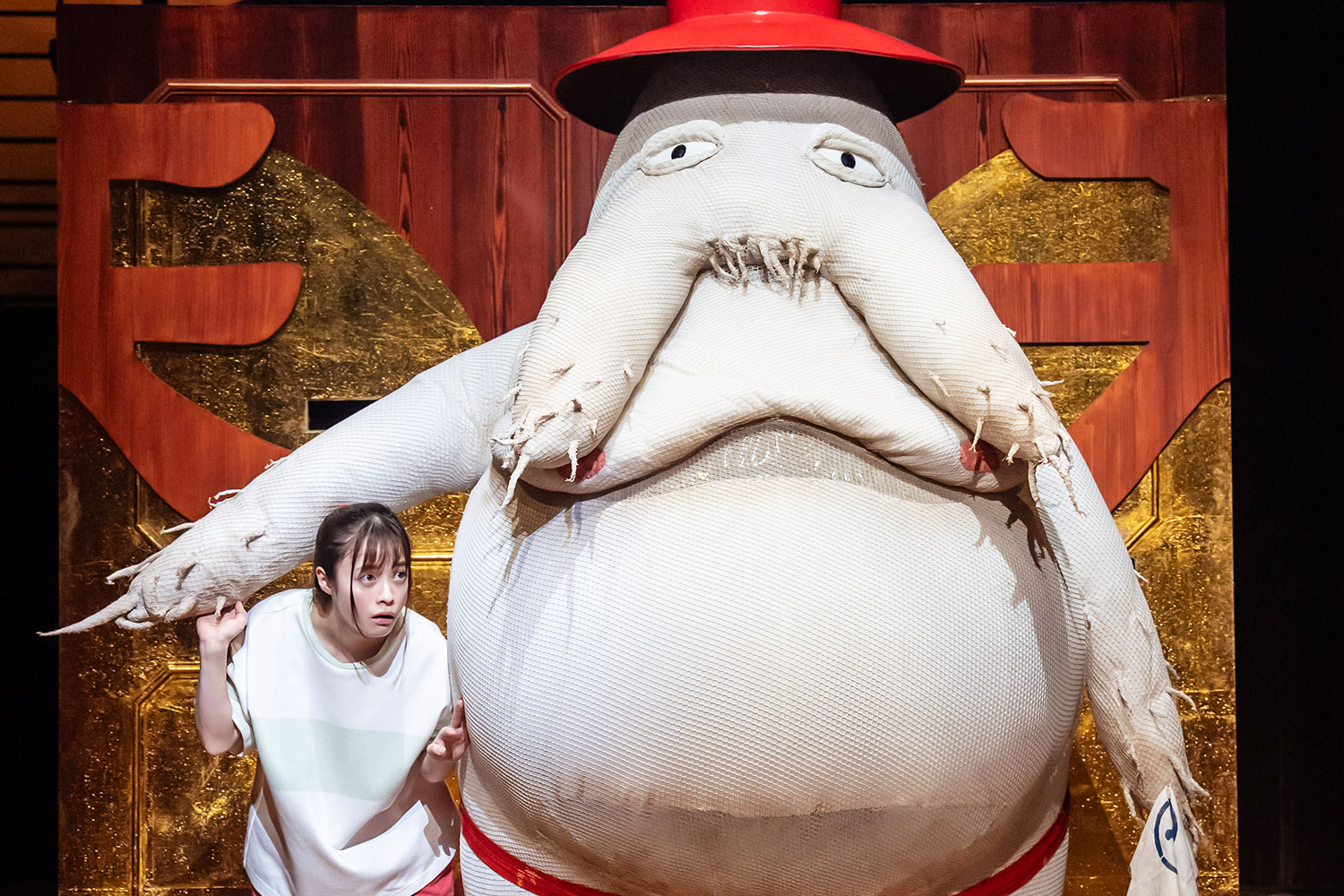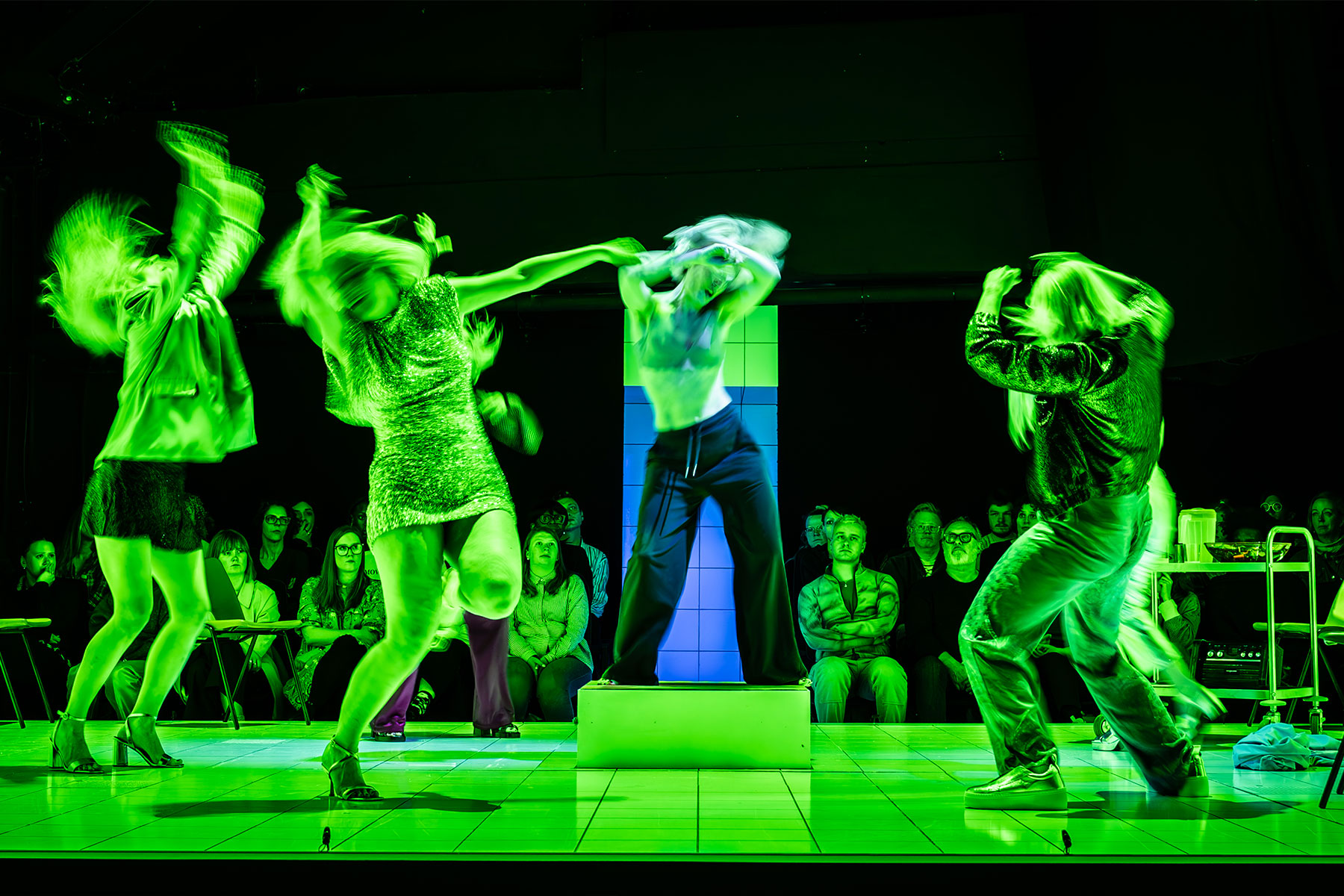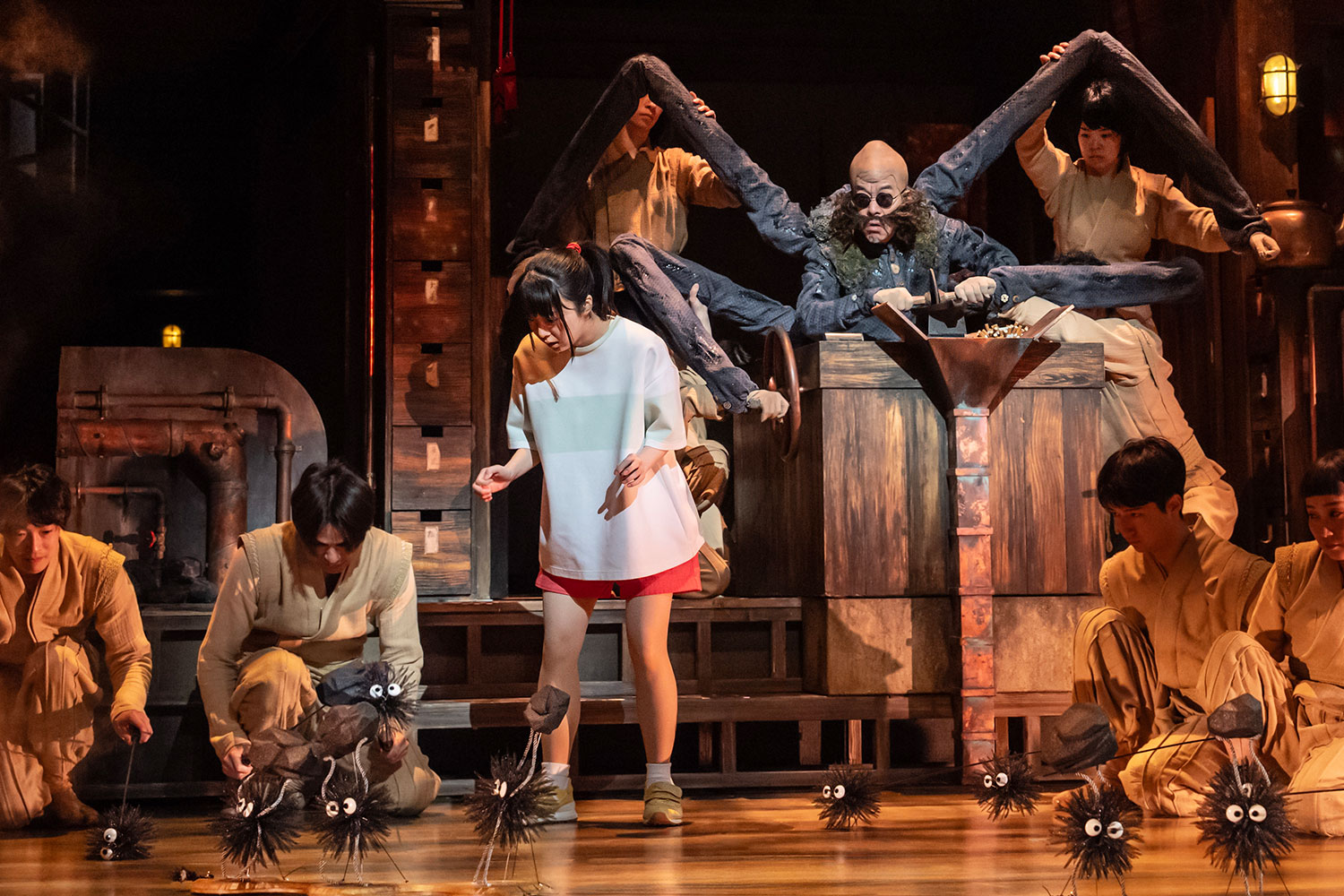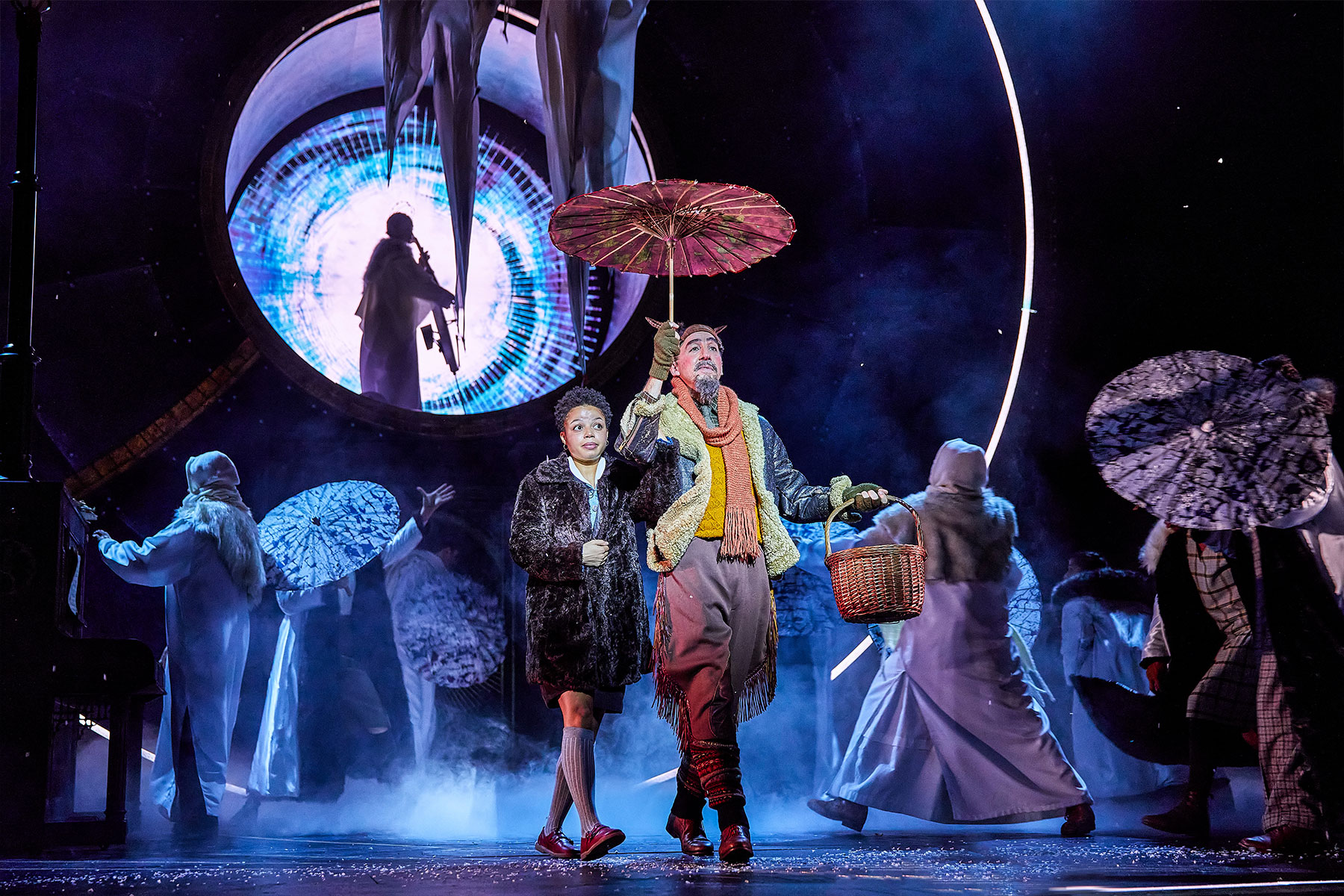What did critics make of Maggie Smith's stage return in A German Life?
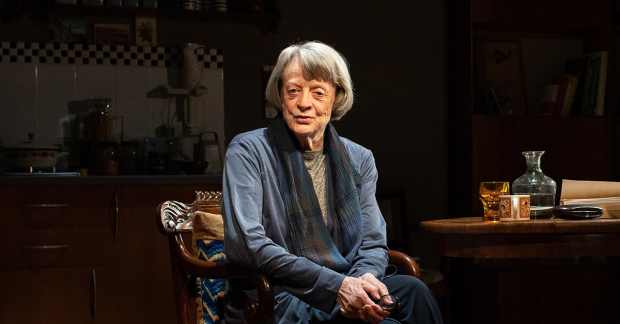
© Helen Maybanks
Sarah Crompton, WhatsOnStage
★★★★
"It is an astonishing thing to see Maggie Smith hold an audience in the palm of her hand. Alone on stage for an hour and 45 minutes, never leaving her chair, speaking quietly and without any overly dramatic emphasis, she brings a woman and a world to life. You lean forward to hold the nuance and meaning of what she is saying. And what you hear is terrifying."
"Returning to the stage after a 12-year absence at the age of 84, Smith barely moves, but Anna Fleischle's brown, dully-domesticated set slides slowly forwards and day turns to night as she reveals the ways in which an ordinary girl from an ordinary family can slowly become trammelled in the deepest reaches of evil, without ever realising where she is residing."
Ann Treneman, The Times
★★★★★
"This is a quiet tour de force by Smith, which isn't a contradiction in terms when you see it in action."
"She makes no attempt at a German accent, and the tone is chatty, confidential, never leaden or studied. From the get-go the audience is rapt. She never leaves the chair and our eyes never leave her. Always we wonder: is she telling the truth? Could she really have known so little?"
"The result is this stripped-down one hour and 40 minute monologue. Jonathan Kent directs without any fussiness and Fleischle's set is also straightforward, a comfortable homely kitchen. The only diversions are the occasional sound prompts, the tinkle of a party, the sound of a crowd, snatches of Goebbels's "Total War" speech."
Dominic Cavendish, The Telegraph
★★★★★
"Last time round – in 2007 – Smith was the pivotal, enigmatic, titular figure in Edward Albee's The Lady From Dubuque in the West End. This time she has landed director Nicholas Hytner – who presided over her unforgettable turns (on stage and screen) as the eccentric vagrant Miss Shepherd in Alan Bennett's The Lady in the Van – with a coup for his new Bridge Theatre."
"It's a performance of ripe ambiguity, not a phrase misjudged, every movement contributing – the way she fiddles, sheepishly, with her necklace, or clamps her hands round her face in an anguished echo of Munch. When she relives her revulsion at Goebbels' notorious ‘total war' rally at Berlin Sportpalast in 1943, we're on her side; when she folds her arms and issues a defiant defence that it was hard to know the truth, impossible to resist – her face bathed in a ghostly, haunting light – it's not so clear."
Aleks Sierz, i News
★★★★★
"[Christopher] Hampton's version builds up a picture of a young woman who claims to have no interest in politics, almost fooling us into believing her protestations, before telling us about the ethical challenges of knowing her Jewish friend Eva Löwenthal, and finally producing a last-minute revelation that is shocking in its implications. Behind the banality of evil is sheer bad faith."
"But, for the rest, Smith radiates a quiet confidence that is stronger than exaggeration. As directed by Jonathan Kent, who uses the venue's thrust stage and Fleischle's mundane kitchen setting to gradually bring Smith closer to us, this surely is the theatre event of the year."
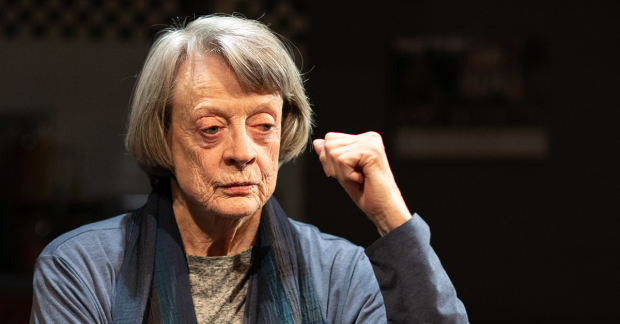
© Helen Maybanks
Tim Bano, The Stage
★★★★
"Kent's production is one of careful bagginess; there's a slack at the beginning that gets pulled increasingly taut, like a fishing line. Smith toys with us, charms us and fools us – she has us hooked.
"Sound designer Paul Groothius adds echoes – a ball, a rally – which blow in, as if on the wind, then disappear. The rise of Nazism is told through its banality, all typing and pay rises. It's the slow creep of evil, as much what she remembers as what she doesn't, as much what she omits as what she says. 'We didn't want to know. That's the truth.'
"Even at the age of 84, barely moving for almost two hours, Smith holds us bound in this trenchant cautionary tale."
Michael Billington, The Guardian
★★★★
"What Smith captures brilliantly is the way, in old age, vagueness of memory co-exists with moments of piercing clarity. Rather than sit in judgement on the character, Smith also presents her from her own point of view. She is unapologetic about her delight in Weimar Berlin or about her initial impression that Goebbels was "damn good looking".
"At the same time, Smith's voice chokes as she recalls Kristallnacht and her features pale as she searches, in the post-war world, for information about her Jewish female friend. Above all, Smith suppresses her irony as, seated for 100 minutes, she relives one woman's extraordinary experience."
Henry Hitchings, Evening Standard
★★★★
"Hampton's script draws on Pomsel's extensive testimony and revels in her ambiguities. Though she can vividly recall Goebbels's manicured hands and the half-hour it took to fill the bathtub he used for passionate dalliances, she explains with disarming vagueness that she knew nothing of the atrocities the Nazis were perpetrating. Yet as she clings to the idea that she was simply doing the same things as most other Germans at the time, contradictions emerge."
"[Smith] brandishes throughout a pair of glasses that she never puts on. They're a nagging image of imperfect focus — one of many finely observed touches in a performance that's expressive but restrained and affords an intimate view of the dangers of political complacency."



